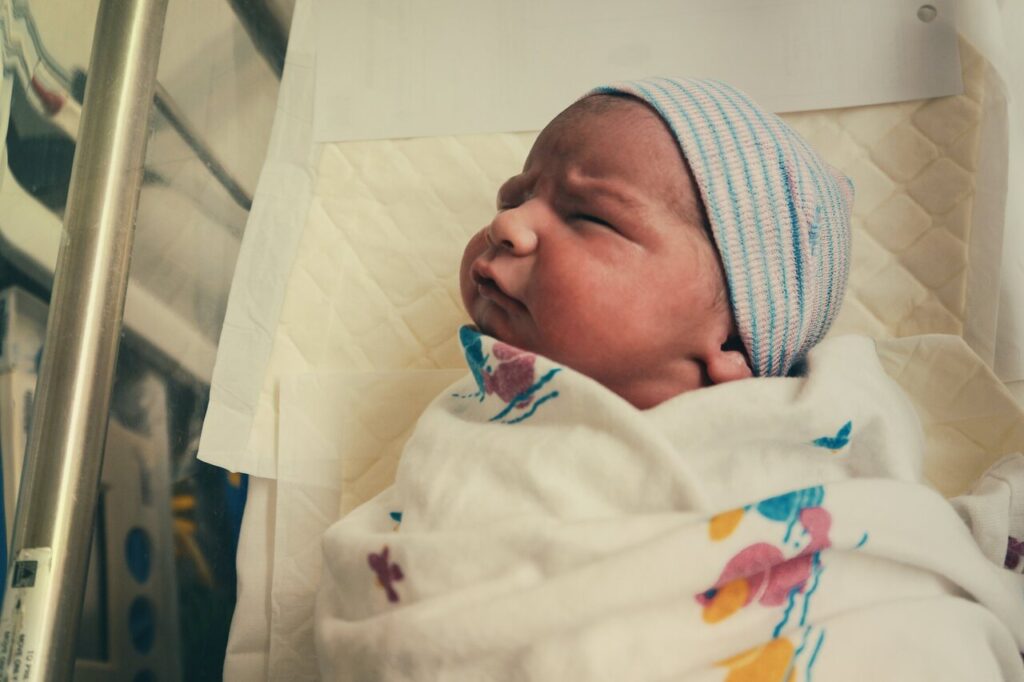
Every new parent is aware of how difficult it may be to get a good night’s sleep at night due to numerous feedings. Nappy changes and carrying a restless infant around the hallways. While taking care of yourself can be difficult when you have a newborn, Grace W. Pien, M.D., M.S.C.E., a sleep specialist at Johns Hopkins, advises that getting enough sleep should be a top priority. (New Parents)
She explains that if you get enough sleep, you’ll be better equipped to handle your new duties as the baby’s carer. You’ll have more patience and be more inclined to enjoy becoming a parent. To get more zzzs, Pien offers the following tactics.
FOR MORE OF OUR CONTENT CLICK HERE.
BY CLICKING HERE YOU CAN CHECK SOME PRODUCTS FOR YOUR CHILD.
Put the Cot Close to your bed. (New Parents)
A more restful night may be had by placing the baby’s cot or bassinet close to your bed. This makes it simpler to attend to the infant before returning to bed. The American Academy of Paediatrics recommends avoiding co-sleeping in the same bed as your infant due to the possibility of smothering the child.
While The Baby Is Sleeping, Sleep (New Parents)
Newborns sleep between 16 and 18 hours per day, with regular naps lasting between 2 and 4 hours. If the only sleep that new parents are getting is nighttime, they are frequently very sleep deprived. “Sleeping while the baby sleeps can sometimes be challenging because of other kids in the house or our internal body clocks. But it’s a good idea to try and get some rest,” advises Pien.
Share Baby Duty at Night (New Parents)
Feedings, nappy changes and other nocturnal infant tasks can be divided between you and your partner. Breastfeeding mothers can pump milk so their partner can give the infant a bottle at night. Allowing the mother to get more rest.
Skip The Housework.
Choose sleep over doing the dishes or the vacuuming. Family and friends will comprehend why the house is a mess, adds Pien. In addition, they are there to view your infant. For the morning after dinner, leave the dishes in the washbasin.
Request Assistance From Your Family and Friends.
Asking friends or family for assistance with tasks like picking up groceries, mopping the floor. Or keeping the baby while you nap should never be considered a sign of weakness. Additionally, friends and family members might be willing to assist with feedings and nappy changes at night.
Utilise Your Parental Leave.
Different employers have different policies regarding parental leave, but occasionally both parents can take time off, making it easier for them to balance child care and resulting in more sleep. while an illustration, “Mom might take time off from work right after the baby is born, and her spouse can take leave several weeks later, helping mom to get some sleep as she transitions back to work,” suggests Pien.
Maintain a Healthy Sleep Habit
Regardless of whether you have a newborn at home, practising good sleep hygiene will help you get more rest. strategies consist of:
- Avoid using electronics before bed: “You may want to post the latest pictures of your baby on social media, but using mobile phones, tablets, and computers at night can interfere with total sleep time,” says Pien. She adds that the light from electronic devices can throw off your body clock.
- Maintaining a regular sleep schedule: Try to go to bed and get up at the same times every day, as challenging as this may sound to a new parent. Just keep in mind that you need to be adaptable and prepare for nighttime awakenings when you have a baby.
- Caffeine should be avoided since it might disrupt your sleep pattern.
Ensure Baby Sleeps
Many infants begin sleeping for longer lengths at night starting around 3 months of age, ranging from 4 to 6 hours, however this varies from newborn to infant. Two-thirds of babies at 6 months sleep for the most of the night. Babies that weigh less at birth begin to sleep for longer lengths of time around the time they weigh around 12 to 13 pounds.
She advises putting newborns to bed when they’re sleepy in order to assist young children develop good sleep patterns. Although it’s up to you, you might try to refrain from rocking the baby to sleep in your arms before bedtime as it can develop into a habit. “Babies eventually need to learn how to fall asleep in their bed on their own,” the author claims.
She also suggests teaching infants how to comfort themselves. This entails refraining from scooping up your infant every time he or she cries. Giving newborns time to calm down so they can go back to sleep on their own can help them develop excellent sleeping patterns, which in turn helps parents enjoy a good night’s sleep.
FOR MORE OF OUR CONTENT CLICK HERE.

